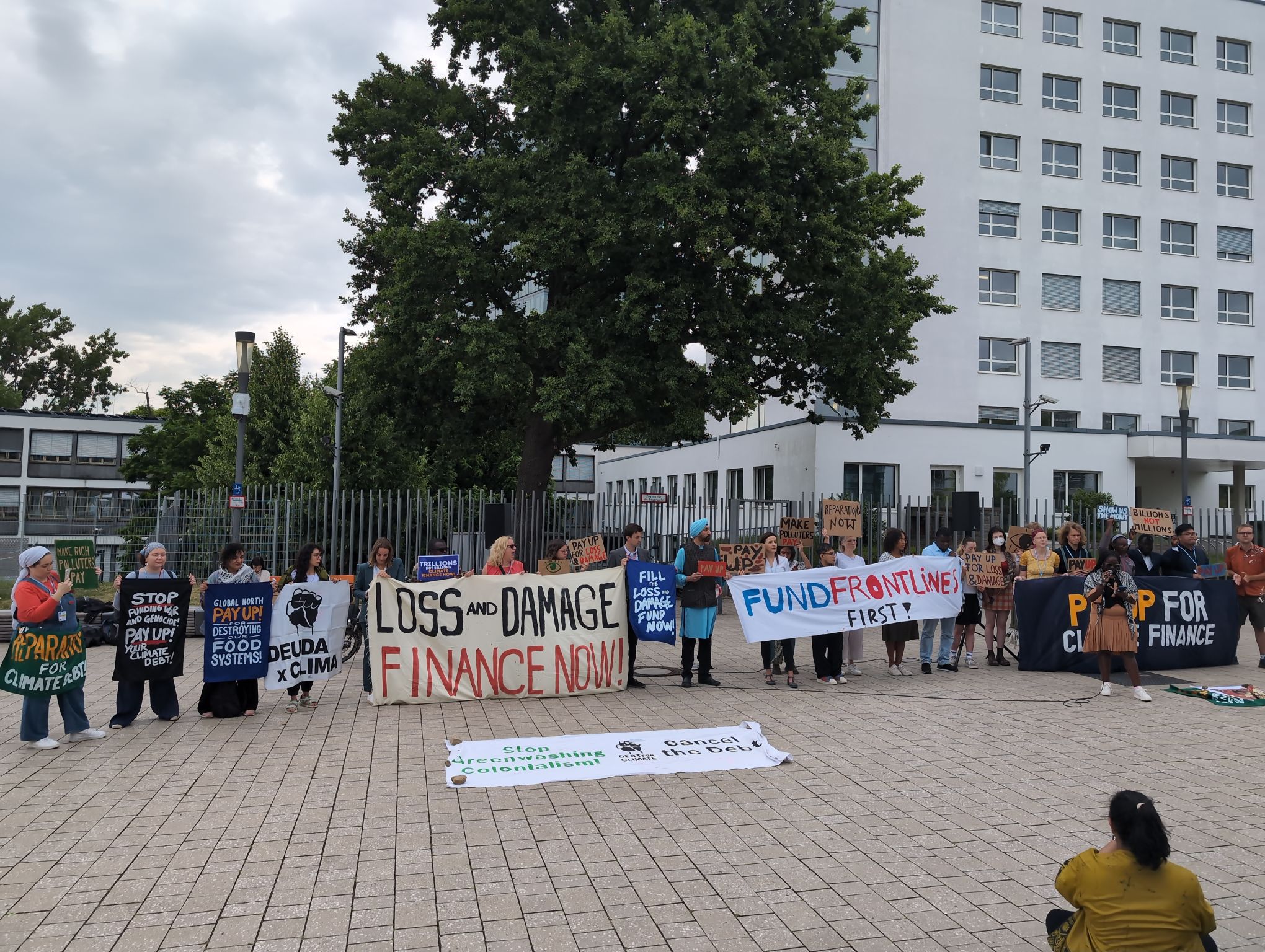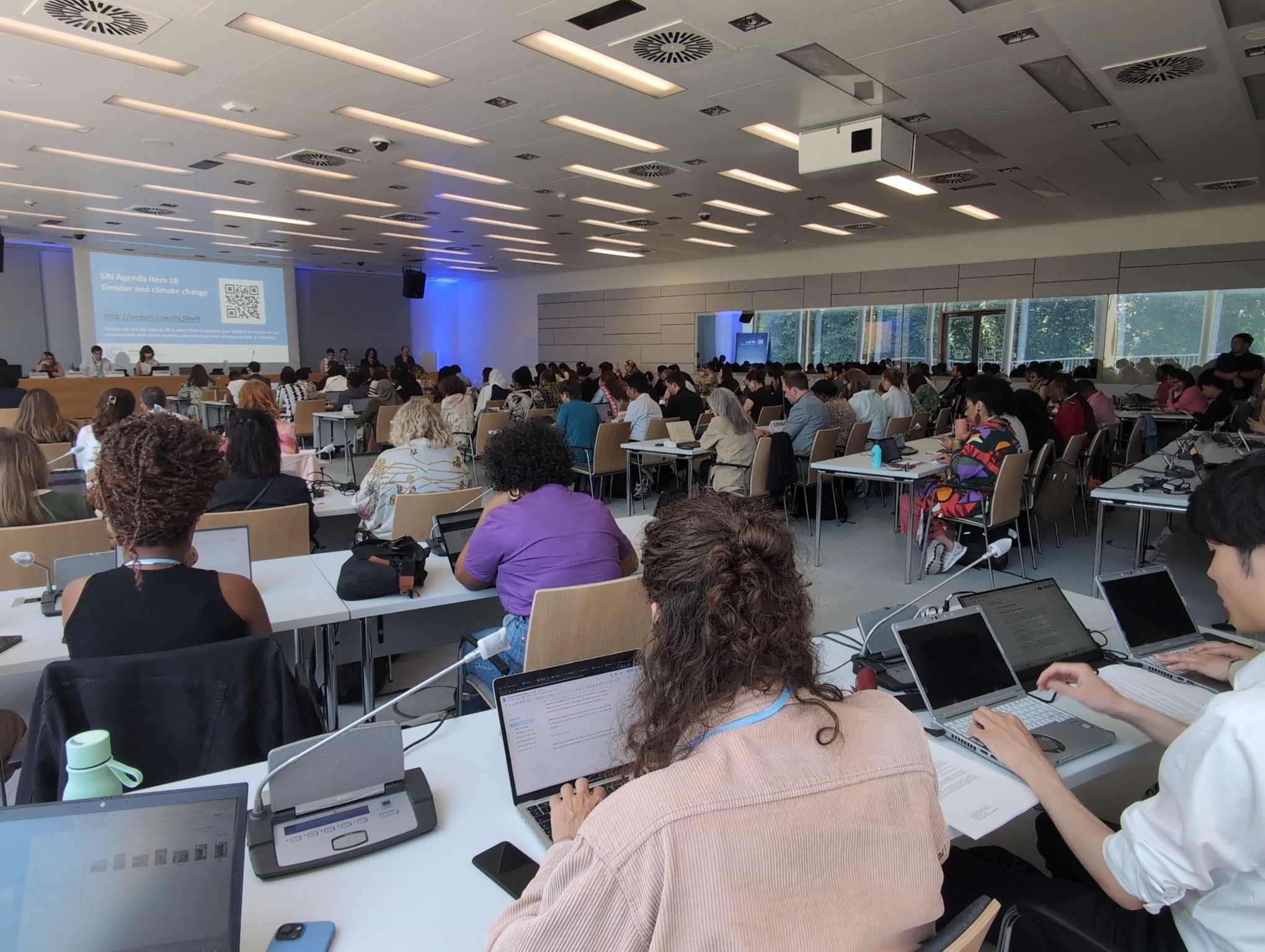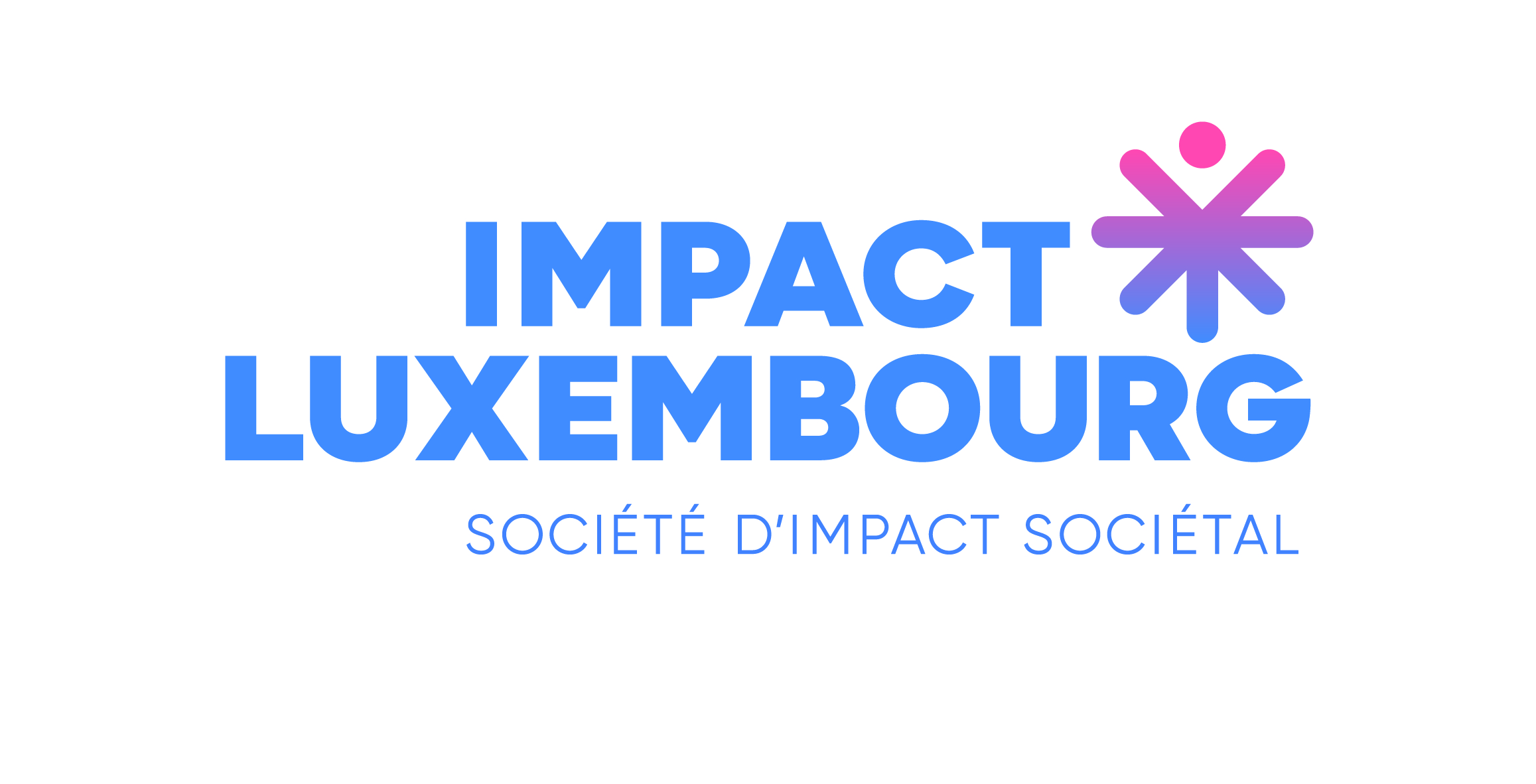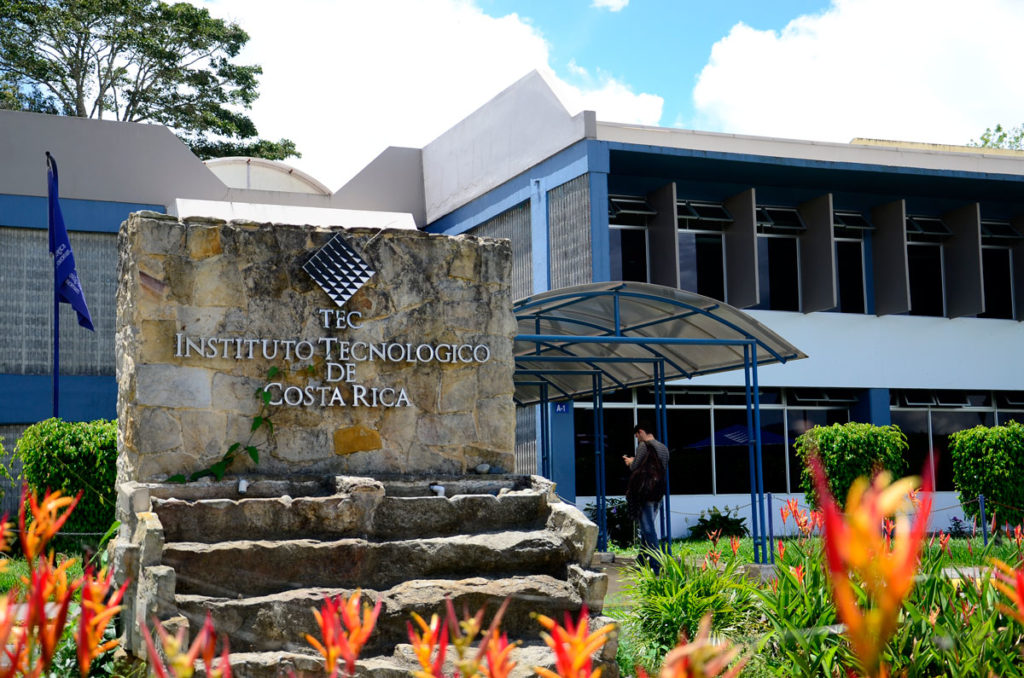EcoCitizen’s Board Member and Senior Advisor Salvatore Coppola-Finegan participated in the UN Climate Change Subsidiary Bodies Meetings (SB62), held in Bonn, Germany, as part of the ongoing negotiations leading to COP30 in Belém, Brazil. These intersessional meetings are the prep for the UN Conference of the Parties—plenty of intense discussions, debates, and negotiations with a good dose of necessary pressure and the watchful eyes of Civil Society.
“We need to go further, faster, and fairer.” UNFCCC Executive Secretary Simon Stiell was spot on at the SB Closing Plenary. There was some progress in getting ready for COP in November, but major challenges persist. And yes… challenges beyond the costly disputes over agenda. The process definitely feels like it’s creaking under the strains of geopolitics, brittle multilateralism and the polycrisis. The lack of urgency (and acceleration!) in efforts the world sorely needs to keep the 1.5°C target within reach is palpable. Still only 20 odd Parties had submitted their NDCs at the time of the meetings, and the September deadline was coming fast.
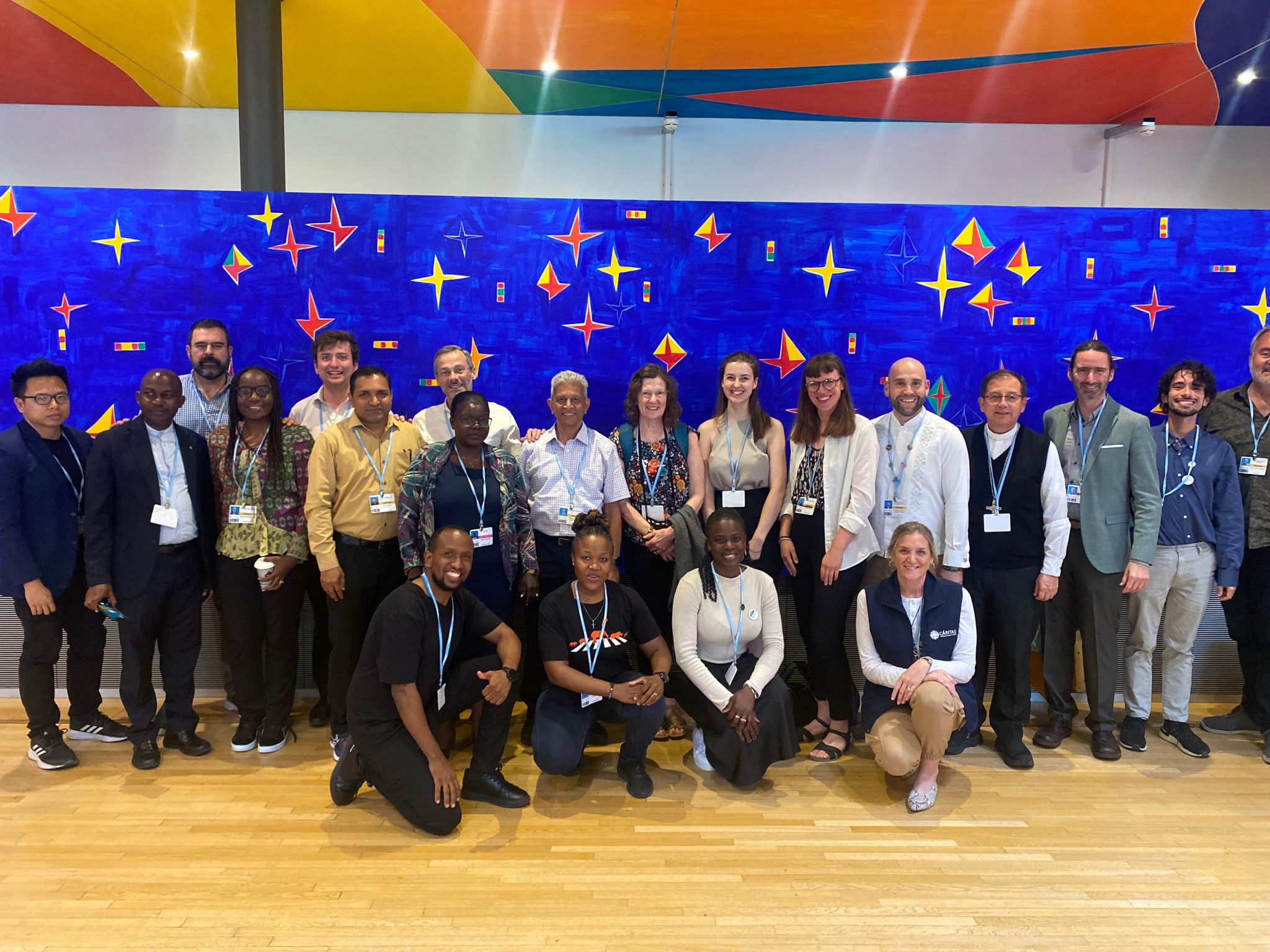
EcoCitizen: A Bridge between Europe and Latin America for Climate Action
EcoCitizen engages actively in building partnerships between Europe and Latin America to drive integrated climate–nature action. This work focused on advocating for urgent, science-based solutions, strengthening multi-stakeholder collaboration, and prioritising the needs and voices of the Global South.
The Brazilian COP presidency, led by Ambassador André Corrêa do Lago, doubled down on the mutirão call of collective action going beyond governments and encouraging businesses, indigenous peoples, civil society, research & academia, and faith-based organisations to mobilise together and implement practical solutions, linking the global and local scales.
Key Negotiation Tracks and Technical Analysis
Throughout the intersessional meetings, Salvatore followed closely the discussions on:
- Climate Finance, including debates on resource mobilization and equity—the elephant in the room that so many other topics are downstream from
- The Just Transition Work Programme, particularly the intersections of finance, trade measures, and social justice—with intense debates and important interventions like that of Panama’s Jocabed Reina Solano Miselis in the plenary
- Loss and Damage, a key area where climate-vulnerable countries continue to push for accountability and effective support.
- Synergies among the Rio Conventions, exploring ways to integrate biodiversity, desertification, and climate agendas—perhaps where we need most effort to integrate approaches and break deadlock, especially considering the Finance challenge
Morning briefings by LACLIMA went like clockwork despite a big Brazilian and Portuguese-speaking African nations crowd, and lots of details to cover on the main agenda items. These technical sessions provided crucial context for understanding the interconnections between negotiation tracks and their real-world implications.
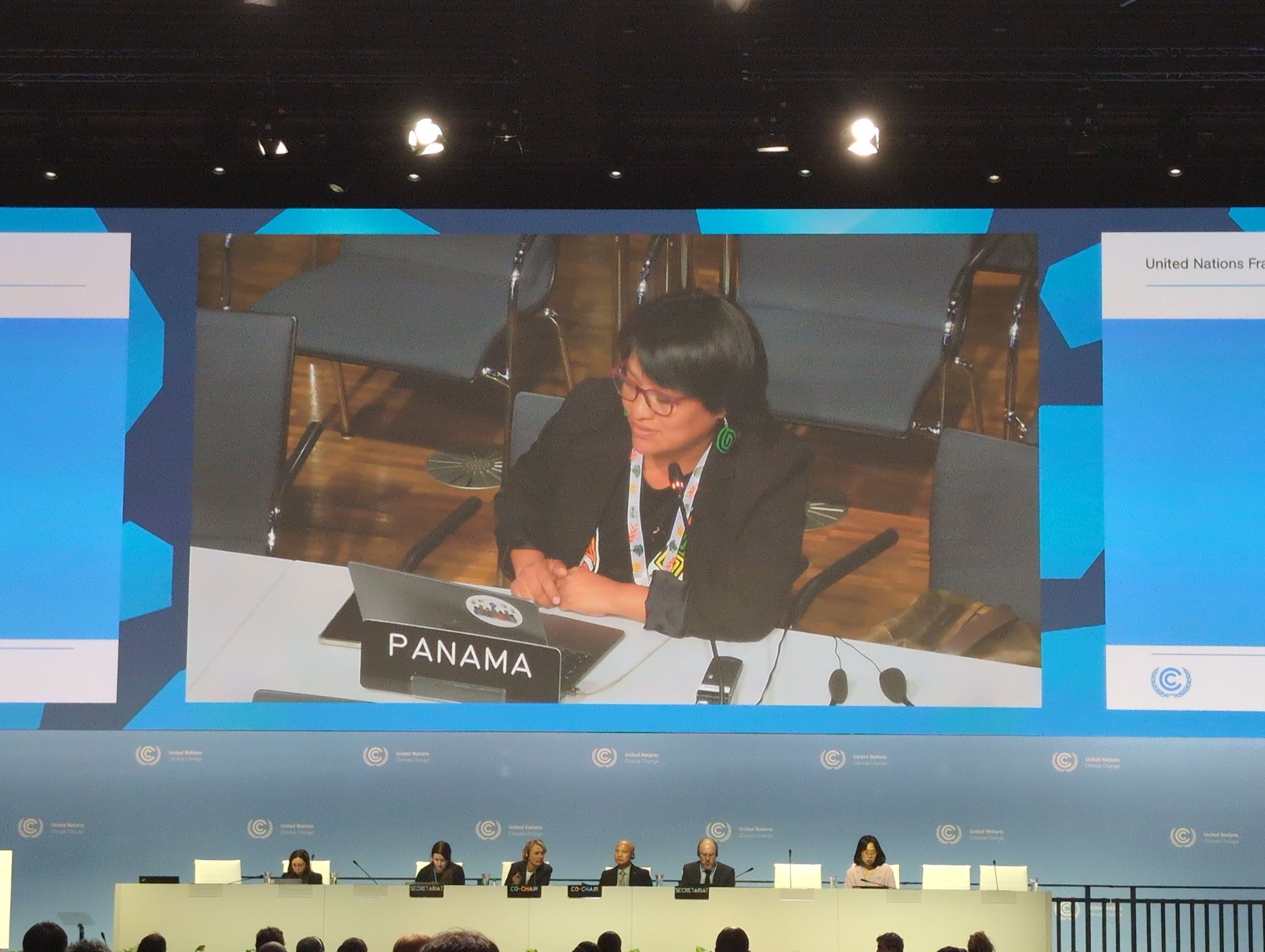
Science-Heavy Bilaterals: Unpacking the Economics of Extraction
EcoCitizen is committed to science and evidence-based policy making, and action. Our Chairman held intense bilaterals, such as with Melissa Marengo from Natural Resource Governance Institute, where we dug deep into the details of false economies of extractive industries over time in Latin America (oil, copper, minerals), and the unwelcome pressures to carry on the same model now for the so-called ‘energy transition’.
The analysis revealed how traditional economic models systematically undercount, or completely ignore, the full spectrum of costs associated with extraction. “We might want to check our excel sheets again… unhide those hidden cells of social, ecological, and climate costs. Maths doesn’t lie. Shall we talk about the demand curve?”, stated Salvatore Coppola-Finegan.
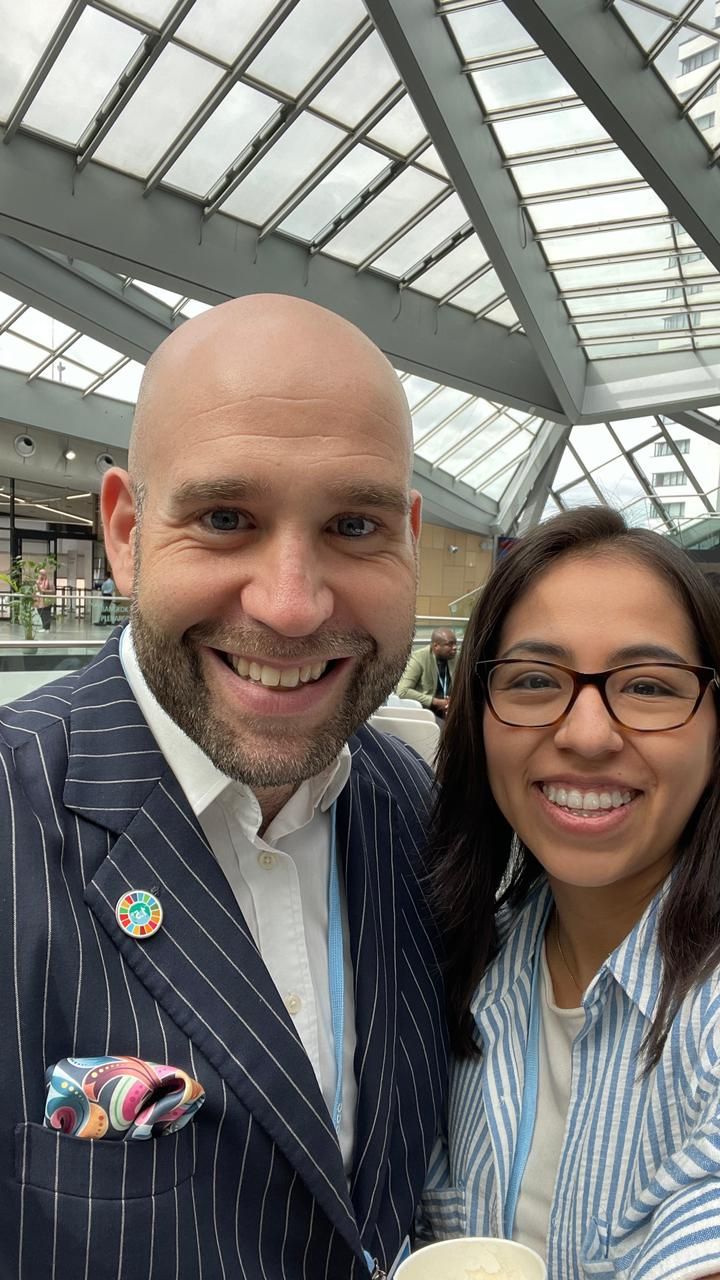
Multi-Stakeholder Engagement: From Science to Action
In addition to technical negotiations, Salvatore contributed to bilateral meetings with civil society, indigenous communities, youth leaders, and faith-based organizations from Latin America and beyond. A key presentation to Mons. Juan Carlos Barreto (CELAM) and representatives of the Catholic Church in Latin America provided a comprehensive technical appraisal of the full range of SB negotiation topics, demonstrating how scientific evidence aligns with the Church’s work in the Global South and proposing strategies to amplify key messages.
This builds on previous collaboration at UNCBD COP16, where EcoCitizen’s Blue Zone side event on Integral Ecology brought together Amazonian Indigenous communities, Buddhist perspectives, and Catholic voices alongside scientific experts. We were able to find the common ground between cultures and knowledge systems when addressing human-environment relationships through evidence-based approaches.
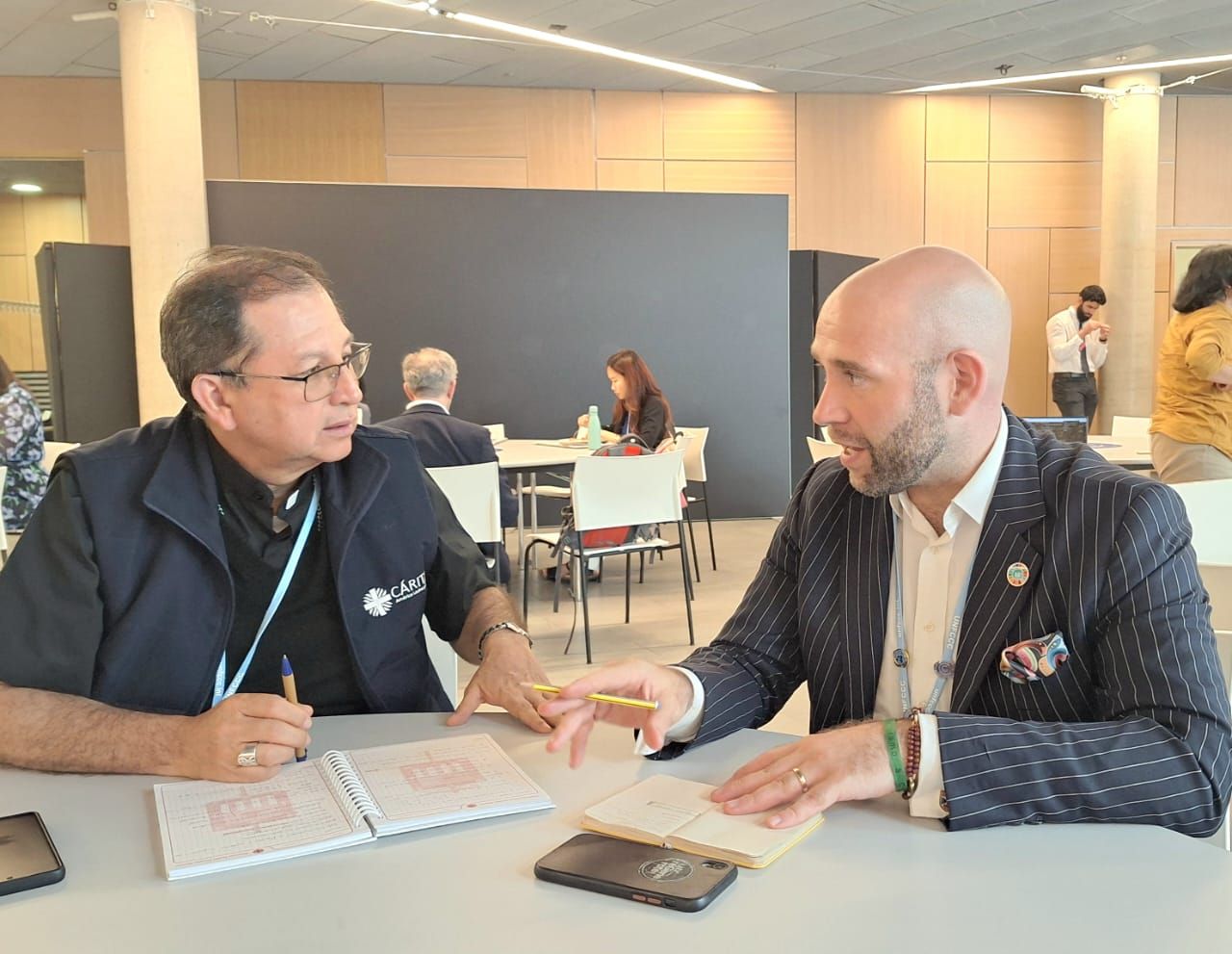
Salvatore also engaged with the Network of Catholic Climate and Environment Actors (NCCEA) and attended a side event on Climate Change & Migration organized by Jesuit European Social Centre (JESC), where the urgent connections between climate science, displacement patterns, and human mobility were discussed—an area where scientific evidence is essential but still under-represented in policy discussions.
The Mutirão Spirit: Science Meets Grassroots Action
This presidency’s major emphasis on broad multilateralism invites us to connect climate policies to people’s lives in the real world, and accelerate Paris Agreement implementation through science-based pathways. This resonates strongly with those of us working to translate research into regenerative action and EcoCitizen’s vision. Our chairman Salvatore was happy to channel the mutirão spirit and held further energetic meetings with indigenous leader Jocabed Reina Solano Miselis from Panama, sudanese youth woman leader Nisreen Elsaim, and youth campaigner and organiser Olumide Idowu, Nigeria’s “Mr. Climate”.
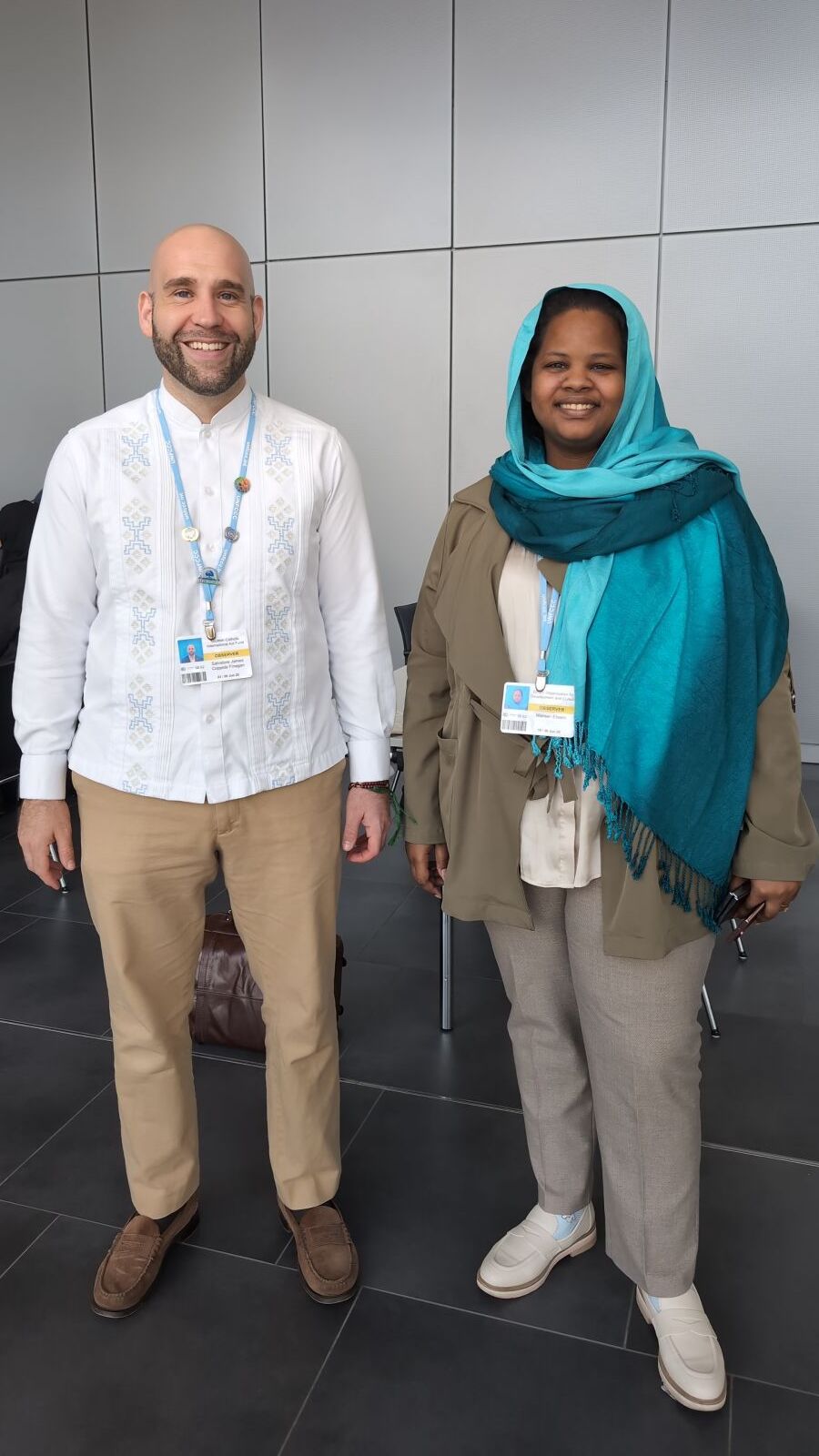
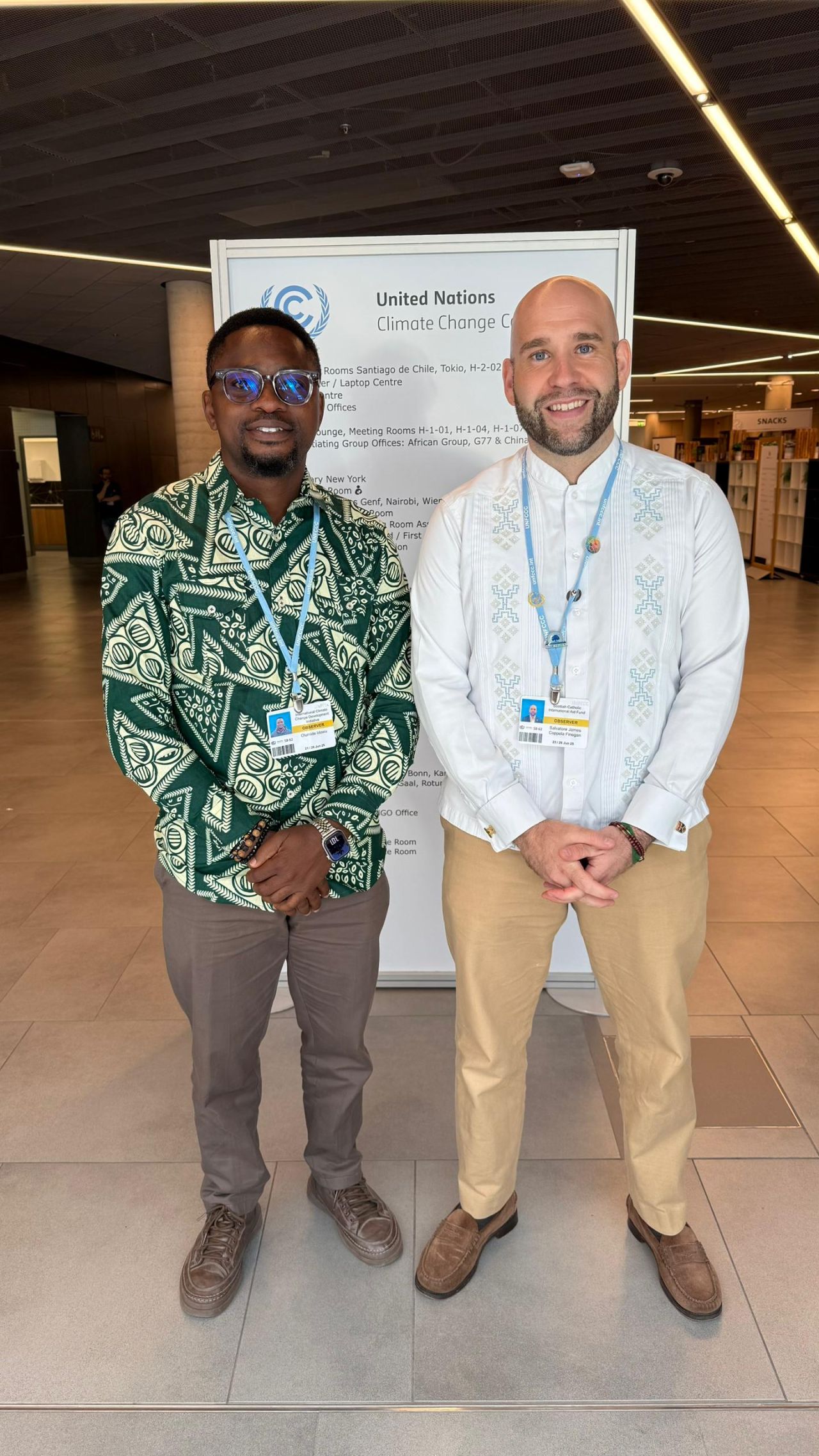
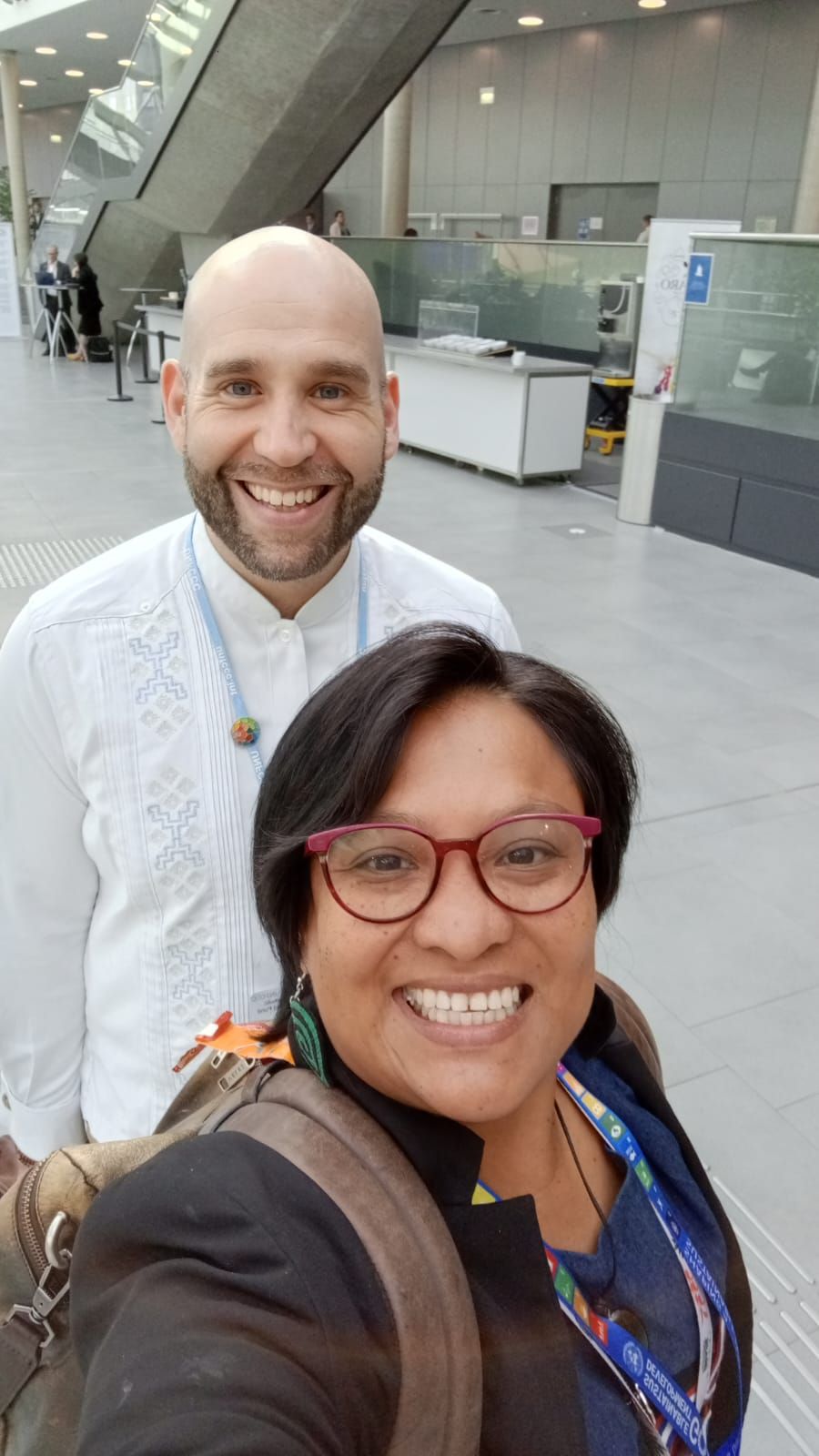
These conversations highlighted how scientific knowledge from diverse sources, including indigenous knowledge systems, youth-led research initiatives, and academic institutions, can inform more effective and equitable climate action.
At EcoCitizen we believe in “stubborn optimism” (C.F.) and our bilaterals served to remind us that it is well-placed, and we are happy to find so many more people actively working to bridge the gap between scientific evidence and practical, collaborative solutions for a genuinely sustainable future.
Looking Toward COP30: The Science-Policy Gap
Where are we going to find renewed energy and purpose to fight for 1.5°C? The single, most important fight that matters for the whole of humanity, and conditions for life on earth to thrive? The science is clear, the evidence is overwhelming, yet the ambition gap persists. As the meetings concluded, progress was made in Just Transition, but the Global Stocktake is basically stalled. The vast majority of countries still hadn’t submitted their NDC 3.0, and September is just around the corner. Major gaps remain, mostly on finance and the timely submission of science-based NDCs that align with the 1.5°C target.
Salvatore closed his participation with a productive bilateral meeting with Adriana Vásquez Rodríguez of La Ruta del Clima, EcoCitizen partner in Costa Rica, to explore how to develop and advance community-driven climate action and resilience-building efforts. The focus, joint proposals to generate and translate scientific findings into practical interventions that build resilience in vulnerable communities. Lots of great things in the pipeline to empower community-driven, evidence-based climate action in Central America!
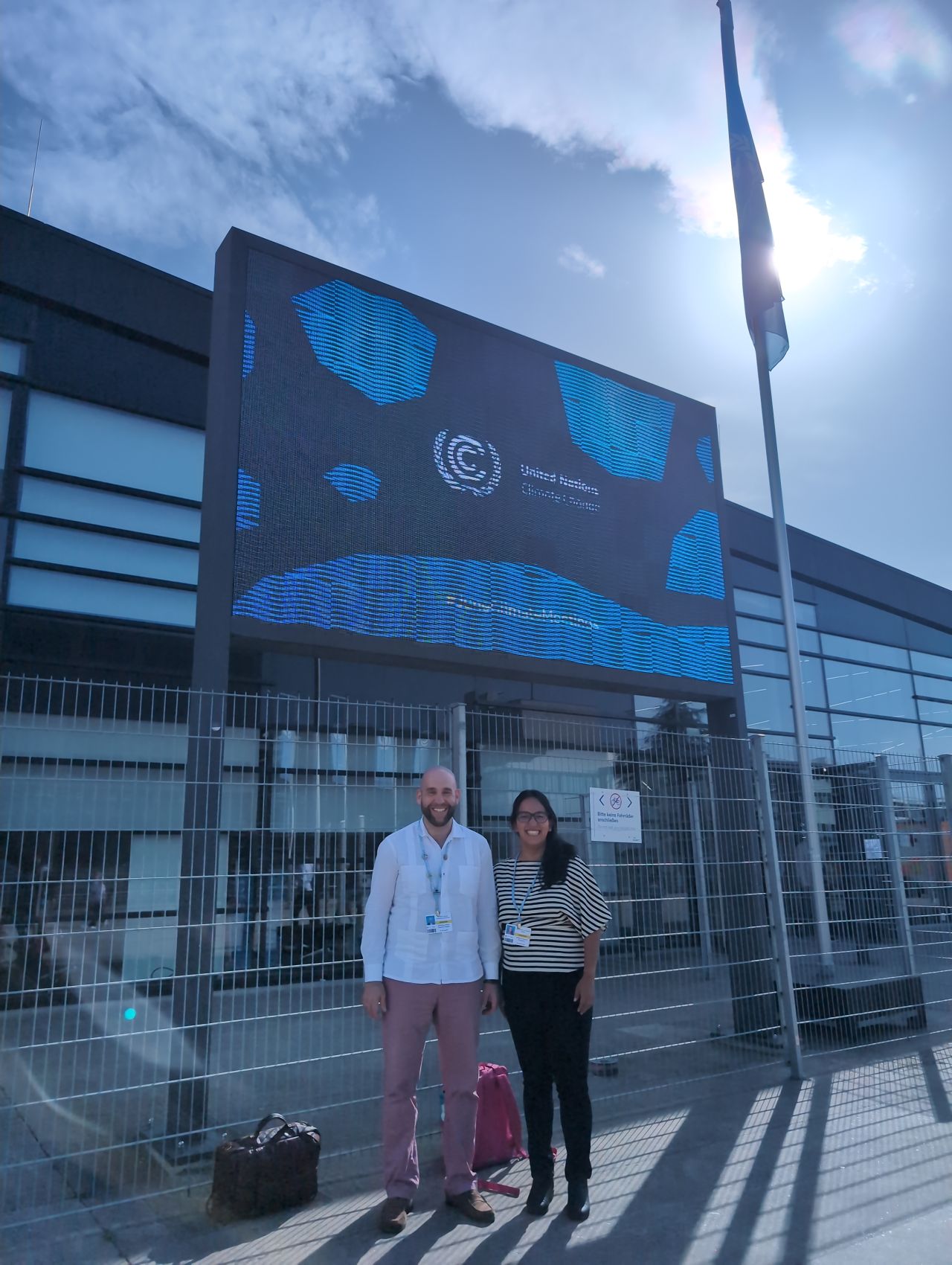
EcoCitizen's Mission: Science as the Foundation
EcoCitizen’s presence at SB62 reaffirmed its mission to bridge science, policy, and communities in pursuit of a more just, inclusive, and effective climate governance system. Salvatore’s participation leveraged his experience as a scientist and technical adviser on social-ecological issues, human rights, and multilateral governance—demonstrating how rigorous scientific analysis can inform policy positions, expose false economic narratives, and empower diverse stakeholders to advocate for evidence-based climate action. This integrated approach—grounding advocacy in solid science while ensuring that scientific knowledge reaches and serves communities on the ground.
Time to row harder, against the current, towards Belém.
Check out more of our engagement at UNFCCC SB62
